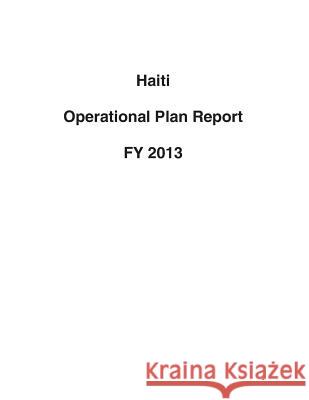Haiti Operational Plan Report FY 2013 » książka
Haiti Operational Plan Report FY 2013
ISBN-13: 9781503193642 / Angielski / Miękka / 2014 / 220 str.
For many in the United States, Haiti has become synonymous with hurricanes and earthquakes whose effects are compounded by the vulnerability of the populations they strike in the Haitian countryside and the precarious hillside encampments around Port-au-Prince. Natural disaster, combined with frequent political instability and disease have continually set back Haitian efforts to chart a stable path toward social and economic renewal. While there are numerous interdependent needs to break these cycles of poverty, improving the health of the Haitian population is central to rebuilding the human and economic capital of one of America's closest neighbors. Haiti's estimated 135,000 HIV positive individuals constitute the greatest burden of HIV/AIDS care and treatment responsibility in the Caribbean region. Underlying the data are geographic shifts in populations living with HIV, and a need to reach key populations disproportionately affected by the virus with effective prevention programs. Haiti has a generalized HIV/AIDS epidemic, with higher prevalence rates in major cities and driven by key populations, such as commercial sex workers (CSW) and men who have sex with men (MSM), and the social conditions of women and youth. As of December 2012, 72 percent of HIV infected individuals with immediate need for antiretroviral therapy were receiving it; and 65 percent of pregnant women were tested for HIV. There is a high level of stigmatization towards HIV positive individuals in the country, especially at the community level. Overall, communicable diseases make up a starkly higher proportion of mortality (72 percent) than the regional average (20 percent) . Haiti has the highest rate of tuberculosis (TB) in the Western Hemisphere with an estimated incidence of 306 cases for 100,000 inhabitants - of which about 60 percent of expected cases are detected and 60 percent of TB patients are tested for HIV. Malaria prevalence is estimated at 4.9 percent. More than 600,000 cases and nearly 8,000 deaths have been reported since the cholera epidemic began in Haiti .
Zawartość książki może nie spełniać oczekiwań – reklamacje nie obejmują treści, która mogła nie być redakcyjnie ani merytorycznie opracowana.











